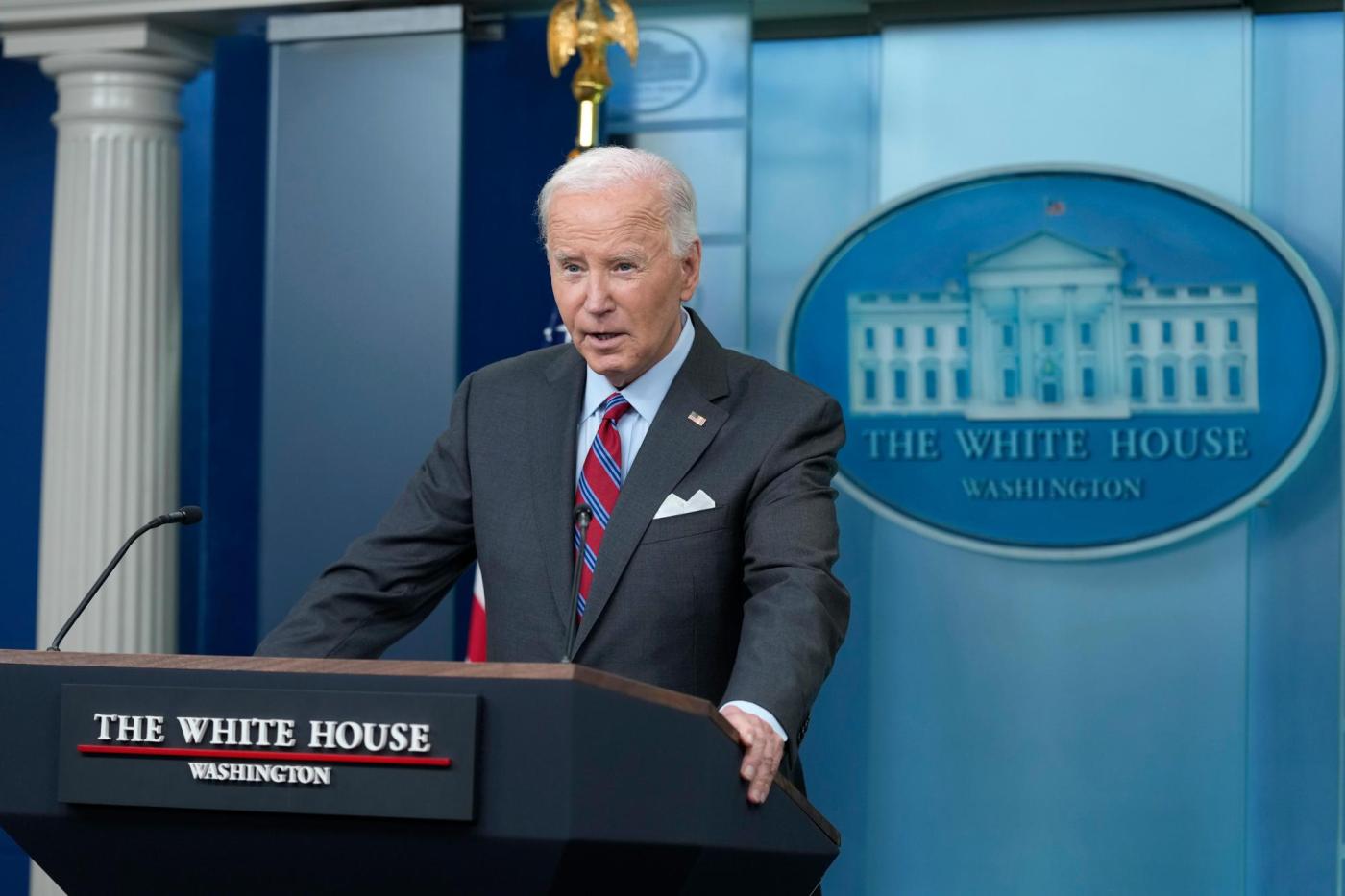
Thomas Friedman: How the Biden team plans to build peace from Sinwar’s death
It is impossible to exaggerate the importance of the death of Hamas leader Yahya Sinwar. It creates the possibility not only of ending the Israel-Hamas war, returning Israeli hostages and bringing relief to the people of the Gaza Strip. It creates the possibility for the biggest step toward a two-state solution between Israelis and Palestinians since Oslo, as well as normalization between Israel and Saudi Arabia — which means pretty much the entire Muslim world.
It’s that big.
But, but, but.
The death of Sinwar alone is not the sufficient condition to end this war and put Israelis and Palestinians on a pathway to a better future. Yes, Sinwar and Hamas always rejected a two-state solution and were committed to the violent destruction of the Jewish state. No one paid a bigger price for that than the Palestinians living in Gaza. But while his death was necessary for a next step to be possible, it was never going to be everything.
The sufficient condition is that Israel have a leader and a governing coalition ready to step up to the opportunity Sinwar’s death has created. To put it bluntly, can Prime Minister Benjamin Netanyahu of Israel live up to his Churchillian self-image and go along with something that he has previously rejected? That is the participation of a reformed West Bank Palestinian Authority in an international peacekeeping force that would take over Gaza in the place of the Sinwar-led Hamas.
For the last month or so, according to my U.S., Arab and Israeli diplomatic sources, Secretary of State Antony Blinken — at the direction of President Joe Biden and Vice President Kamala Harris — along with Crown Prince Mohammed bin Salman of Saudi Arabia, President Abdel Fattah el-Sissi of Egypt and Sheikh Mohammed bin Zayed Al Nahyan of the United Arab Emirates have been discussing ideas of what to do on the day after this war ends to rebuild a post-Hamas Gaza, pave the way for Saudi-Israeli normalization, and create the conditions for another attempt by Israel and the Palestinians to negotiate a different future in both Gaza and the West Bank.
The broad idea is for the Palestinian Authority president, Mahmoud Abbas, to agree to appoint economist and former PA prime minister Salam Fayyad — or someone of his sterling reputation for incorruptibility — as the new Palestinian prime minister to lead a new technocratic Cabinet and reform the Palestinian Authority, root out corruption and upgrade its governance and security forces.
Such a reformed Palestinian Authority would then formally ask for — and participate in — an international peacekeeping force that would include troops from the UAE, Egypt, possibly other Arab states and maybe even European nations. This force would be phased in to replace the Israeli military in Gaza. The Palestinian Authority would then be responsible for rebuilding Gaza with relief funds provided by Saudi Arabia, the UAE and other Arab Gulf states, Europeans and most likely the U.S.
A reformed Palestinian Authority, with massive Arab and international funds, would attempt to restore its credibility in Gaza, and the credibility of its core Fatah organization in Palestinian politics — and sideline the remnants of Hamas.
The U.S. and Arab diplomats — with quiet assistance of former British prime minister Tony Blair — have been working on this concept with Israel’s minister of strategic affairs, Ron Dermer, Netanyahu’s closest adviser. It requires Israel, for now, only to quietly permit the involvement of the Palestinian Authority in the rebuilding of Gaza as part of the international force — not to formally embrace it.
Netanyahu understands, though, that the Arabs will participate in an Arab/international peacekeeping force to clean up the mess in Gaza only if it is part of a process leading to Palestinian statehood.
Crown Prince Mohammed, in particular, has made it very clear to everyone that for Saudi Arabia to go ahead with normalization with Israel — after so many Palestinian deaths in Gaza — he needs the war in Gaza to end and any Arab peacekeeping force to be a step that will one day lead to a Palestinian state. The same is true for the UAE and Egypt.
MBS needs to show that in the wake of the war in Gaza that he got something from Israel that no other Arab leader ever got, because he is potentially giving Israel something no Israeli leader ever got: relations with the home of Islam’s two holiest mosques. MBS is also vital to getting Abbas to appoint a reformer like Fayyad. Abbas respects MBS.
Let me repeat: a diplomatic initiative to end the war along these lines — and engineer a Saudi-Israel normalization and Arab peacekeeping force — will eventually require Israeli commitment to a pathway to Palestinian statehood. That will trigger virulent opposition from Netanyahu’s extremist messianic right-wing partners, National Security Minister Itamar Ben-Gvir and Finance Minister Bezalel Smotrich. They will foolhardily see the killing of Sinwar and the collapse of Hamas as an opportunity to think they can kill every last Hamas member in Gaza in order to carry out their agenda of putting Jewish settlements into Gaza and expanding them in the West Bank.
Netanyahu has long wanted to show that he is a historic figure, not just a tactician always maneuvering to stay alive politically — but never ready to take a big risk to change history.
Well, this is his moment.
Will he cross the Rubicon or do what he usually does — just dog paddle in the middle of it and tell those on each side that he is coming their way?
But this is also history time for MBS. If he wants a security treaty with the U.S., then the process needs to be launched while Biden is still president. (Senate Democrats will never vote for it under Donald Trump.) That means MBS is going to have to normalize relations with Israel before a Palestinian state is actually created — but do it on the basis of both Israelis and Palestinians specifically moving in that direction.
As someone who has covered the turmoil in the Middle East intensely since Oct. 7, 2023, I am newly hopeful about the possibility that the killing of Palestinians in Gaza will stop, the hostages will be returned and real diplomacy will start. And if the respective leaders rise to this moment, there could be a lot more to be hopeful about. Today is a start. What happens on the day after this war is everything.
Thomas Friedman writes a column for the New York Times.
Related Articles
Tyler Cowen: AI will transform philanthropy, too
Bret Stephens: Harris needs a closing argument. Here’s one
Thomas Friedman: How America can stop a Mideast missile war that everyone will lose
F.D. Flam: It’s getting harder to study fake news
Parmy Olson: Nobel prizes give Google the glow it craves


